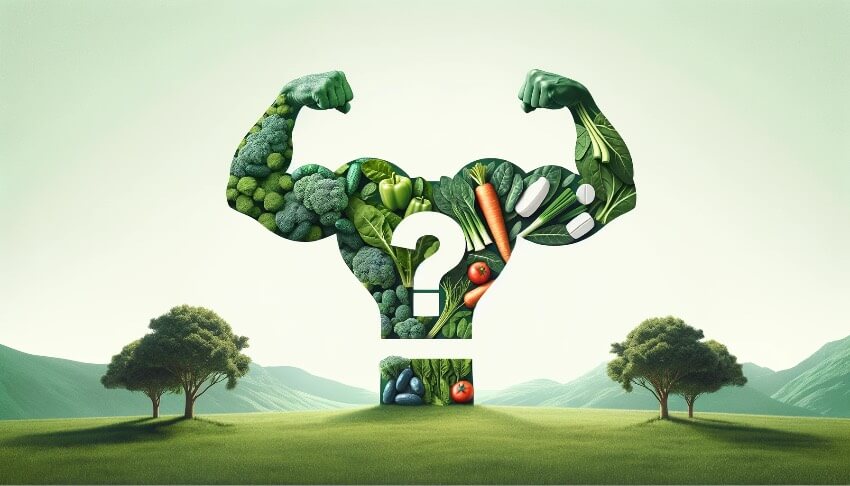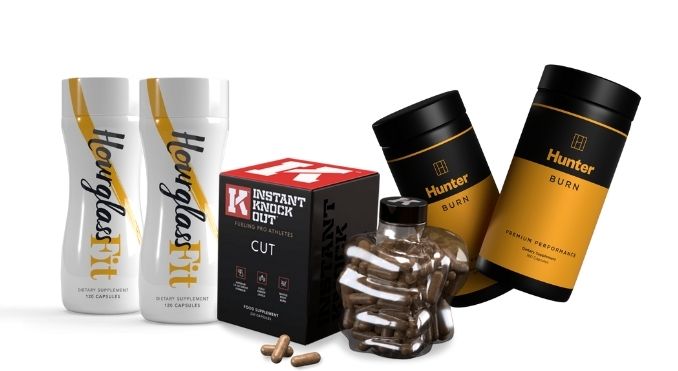Vitamin K is known for being essential for normal blood clotting and maintaining bone integrity. Vitamin K is found in high amounts in your brain, kidneys, bones, and even testes. The question is, can vitamin K, specifically vitamin K1, improve your testosterone levels? Science suggests that the answer is no. Vitamin K1, which makes up about 70-90% of our vitamin K dietary intake, has no notable effect on the male hormone testosterone. The other form of vitamin K, however, which is K2, is shown to positively influence testosterone levels in cases of deficiency.
Role of Testosterone
What exactly is testosterone? In essence, it’s a messenger in your body, circulating in especially high amounts in men. It helps you build muscle, deepens your voice during puberty, and gives you the attraction for the opposite sex.
More than that, testosterone plays a crucial role in your overall health and mood, and processes you are not even aware of. For example, testosterone is crucial for maintaining a healthy heart, protecting your liver, and influencing concentration and mental well-being. [2]
As men get older, their testosterone levels naturally go down year by year. However, factors like your diet, exercise (or lack thereof), toxin exposure, and sleep hygiene all massively affect testosterone levels, and if you aren’t careful, can lower them prematurely. [3]
Diet, in particular, needs to be rich in vitamins and minerals that ensure normal testosterone production.
This begs the question, is vitamin K1 one of those nutrients?
Vitamin K1’s Functions
The answer is no. Vitamin K is actually seperated into vitamin K1 and vitamin K2. While vitamin K2 has some effect on testosterone in people who’re deficient, vitamin K1 is unlikely to have much of an effect, according to the current evidence.
What vitamin K1 does is helping your blood clot properly. A person gets a small cut—vitamin K1 helps it stop bleeding quickly. Vitamin K1 is also good for your bones, promoting their structure, strength, and integrity. Vitamin K1 food sources include spinach, kale, broccoli, and other plant foods.
As for vitamin K2, it’s mostly found in natto and animal foods, like pork sausages.
Any Notable Studies?
Unfortunately, very few studies on vitamin K1 exist that show any positive correlations with testosterone production.
A 2011 study published in the Journal of Lipids in Health and Disease looked into vitamin K2’s effects on testosterone in male rats and some cells, and found it did boost testosterone. However, they didn’t see the same effect with vitamin K1. [1] It’s important to say the obvious, which is that these study was done on animals and on a clump of cells, so obviously, it may not have the same result in humans.
As for right now, there’s no solid human evidence to show additional vitamin K1 intake can benefit testosterone in any way.
References
- Ito A, Shirakawa H, Takumi N, Minegishi Y, Ohashi A, Howlader ZH, Ohsaki Y, Sato T, Goto T, Komai M. Menaquinone-4 enhances testosterone production in rats and testis-derived tumor cells. Lipids Health Dis. 2011 Sep 13;10:158. doi: 10.1186/1476-511X-10-158. PMID: 21914161; PMCID: PMC3180407.
- Nassar GN, Leslie SW. Physiology, Testosterone. [Updated 2023 Jan 2]. In: StatPearls [Internet]. Treasure Island (FL): StatPearls Publishing; 2023 Jan-. Available from: https://www.ncbi.nlm.nih.gov/books/NBK526128/
- Jin H, Yan M, Pan C, Liu Z, Sha X, Jiang C, Li L, Pan M, Li D, Han X, Ding J. Chronic exposure to polystyrene microplastics induced male reproductive toxicity and decreased testosterone levels via the LH-mediated LHR/cAMP/PKA/StAR pathway. Part Fibre Toxicol. 2022 Feb 17;19(1):13. doi: 10.1186/s12989-022-00453-2. PMID: 35177090; PMCID: PMC8851716.



